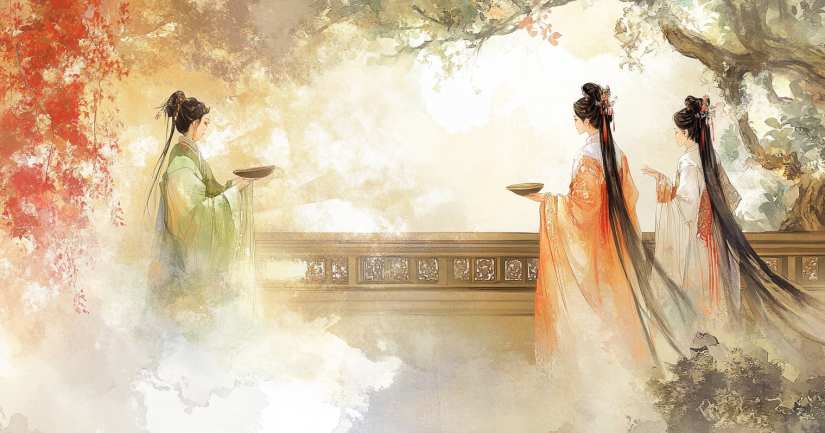
With our Chinese Culture Quiz, Test Your Knowledge of China’s Rich Traditions and Heritage. The Chinese Culture Quiz challenges your understanding of one of the world’s most ancient and influential civilizations. China’s culture reflects over 5,000 years of history, shaping art, philosophy, cuisine, language, and daily life. From traditional festivals to Confucian teachings, its heritage remains deeply woven into modern society. This quiz will test your knowledge of China’s customs, beliefs, and unique traditions.
China’s festivals, rooted in history and folklore, celebrate family, prosperity, and nature’s cycles.
- Chinese New Year (Spring Festival, 春节): Marking the lunar year’s beginning, this festival features dragon dances, red envelopes, and fireworks to bring good fortune.
- Lantern Festival (元宵节): On the 15th day of the Lunar New Year, glowing lanterns light the night while families enjoy sweet rice dumplings (tangyuan).
- Qingming Festival (清明节): Families honor ancestors by sweeping graves and making offerings, reflecting China’s strong filial traditions.
- Dragon Boat Festival (端午节): Commemorating poet Qu Yuan, this festival includes dragon boat races and eating zongzi (sticky rice wrapped in bamboo leaves).
- Mid-Autumn Festival (中秋节): Families reunite to admire the full moon and share mooncakes, symbolizing harmony and togetherness.
Curious about more cultural gems? Step into the world of classic tales with the Chinese Cinderella Quiz, or explore the timeless beauty of traditions through the Chinese Beauty Standards Quiz.
Now’s Your Turn – Chinese Culture Quiz
Traditional Festivals and Their Significance
Confucianism, Daoism, and Buddhism: The Foundations of Chinese Thought
Three major philosophies shape Chinese culture:
- Confucianism, founded by Confucius (551–479 BCE), emphasizes respect, education, and family values.
- Daoism, attributed to Laozi, promotes harmony with nature, inner balance, and the concept of Wu Wei (effortless action).
- Buddhism, introduced from India, influenced Chinese spirituality, inspiring temples, art, and meditation practices.
These philosophies continue to guide Chinese values and ethics in modern society.
The Role of Language and Calligraphy
The Chinese language features one of the world’s oldest and most complex writing systems. Chinese characters (汉字, Hànzì), originally pictographs, evolved into a refined art form. Calligraphy (书法, shūfǎ) remains a revered tradition, emphasizing balance, brush technique, and artistic expression. Mandarin, China’s official language, unites the country’s diverse regions, but dialects like Cantonese, Shanghainese, and Hokkien remain widely spoken.
Chinese Cuisine: Regional Diversity and Unique Flavors
Food plays a central role in Chinese culture, with each region offering distinct flavors and cooking styles:
- Sichuan Cuisine (川菜): Famous for its bold, spicy flavors, including hotpot and mapo tofu.
- Cantonese Cuisine (粤菜): Known for delicate flavors, dim sum, and roasted meats like Peking duck.
- Shandong Cuisine (鲁菜): Featuring seafood, crispy textures, and fragrant braised dishes.
- Jiangsu Cuisine (苏菜): Focused on sweet and savory flavors, with dishes like lion’s head meatballs.
- Xinjiang and Yunnan Cuisine: Influenced by ethnic , featuring lamb skewers, rice noodles, and spicy stews.
Traditional Chinese Medicine and Holistic Health Practices
Traditional Chinese Medicine (中医, Zhōngyī) focuses on balancing Qi (life energy) through herbal remedies, acupuncture, and Tai Chi. Techniques such as cupping therapy, reflexology, and dietary therapy have influenced global wellness trends. Many people in China still rely on TCM alongside modern medicine for treatment and health maintenance.
The Influence of Art, Music, and Performance
China’s rich artistic traditions include painting, opera, and folk music.
- Traditional Chinese painting (国画, Guóhuà) features ink brush techniques inspired by nature.
- Peking Opera (京剧) combines storytelling, martial arts, and elaborate costumes.
- The Guzheng and Erhu, two ancient instruments, create mesmerizing melodies in Chinese classical music.
Martial arts, including Kung Fu (功夫) and Tai Chi (太极拳), blend philosophy, self-discipline, and movement.
How Well Do You Know Chinese Culture?
Chinese culture blends ancient traditions with modern influences, shaping philosophy, language, and daily life. Whether you are fascinated by festivals, food, or history, this quiz will put your knowledge to the test. Take the Chinese Culture Quiz and explore the beauty of China’s rich heritage!
China Quizzes – Explore the Wonders …
